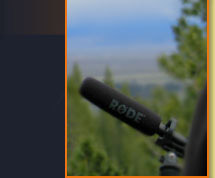My recent article about the Moonlight Fire in Plumas County - and how scientists now believe climate change is helping to spark more destructive wildfires - drew a number of responses about the value of thinning over-crowded stands before a fire starts. You might think of it as preventative medicine - and while controversial among some environmentalists - it has been shown to reduce the damage caused by today's increasingly severe fires.
From Chester, Jay Francis, forest manager at the Collins Pine Company wrote to say that the same day the Moonlight Fire began (Sept. 3, 2007), another fire started on his company's property about 15 miles to the west. "Officials estimated it had been burning for about 10 hours (overnight) when they first arrived on scene yet they were able to catch it with just 1 engine and a water tender," Jay wrote in an email. "Human caused, probably a cigarette, but probably not intentional. The big difference is that our fire was in an area that had been biomass thinned about 12 years ago and then logged again (for the 4th time) about 3 years ago. Quite a contrast."
Jay attached a photo of the Collins Pine fire, shown immediately below. A few smaller trees
have obviously been killed, but many more bigger ones survived. Now compare that with a different photo - one directly below. That picture, which I took this fall, shows a part of the Plumas National Forest north of Indian Valley that has been badly burned by the Moonlight fire. Not much living remains.
Which forest will sequester more carbon dioxide in coming decades - and help California meet its greenhouse gas reduction targets? Which forest will be home to a greater variety of wildlife? As fires continue to burn, some fear Sierra Nevada forests will become an overall source of CO2, not a natural green reservoir that soaks it up. What are your thoughts? What role should thinning play in keeping forests healthy? Do you know of examples where thinning has helped - or hurt - our western forest? Let me know. With your input, I hope to continue a dialogue on this subject in coming months.
Read Full Article















